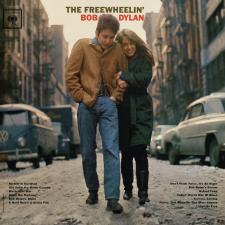

Unwittingly, Dylan laid the groundwork for other folk musicians and performers of the era, some of whom were more committed to the two major movements that were challenging America’s status quo, and helped them reach wider audiences.īy 1964, however, Dylan told friends and some reporters that he was no longer interested in politics. At a time when the chill of McCarthyism was still in the air, Dylan also showed that songs with leftist political messages could be commercially successful.

Over a short period-less than three years-Dylan wrote about two dozen politically oriented songs whose creative lyrics and imagery reflected the changing mood of the postwar baby-boom generation and the urgency of the civil rights and antiwar movements. Dylan emerged on the music scene in 1961, playing in Greenwich Village coffeehouses after the folk music revival was already underway, and released his first album the next year. Journalists and historians often treat Dylan’s songs as emblematic of the era and Dylan himself as the quintessential “protest” singer, an image frozen in time.
#TALKIN WORLD WAR III BLUES LYRICS TV#
When the makers of Hollywood movies, documentary films, or TV news programs want to evoke the spirit of the 1960s, they typically show clips of long-haired hippies dancing at a festival, protestors marching at an antiwar rally, or students sitting-in at a lunch counter, with one of two songs by Bob Dylan-“Blowin’ in the Wind” or “The Times They Are a-Changin’”-playing in the background. The following essay is adapted from The 100 Greatest Americans of the 20th Century: A Social Justice Hall of Fame, which Nation Books will publish early next year. Peter Dreier ▪ May 24, 2011īob Dylan turns seventy today. But his peace and justice songs have had a life of their own.

Dylan’s off-and-on engagement with politics is intriguing. "Watch New Video for Rita Wilson's 'I Wanna Kiss Bob Dylan '".

It was one of the last songs recorded for The Freewheelin' Bob Dylan and was a replacement for " Talkin' John Birch Paranoid Blues", which had been rejected by Columbia Records. "Talkin' World War III Blues" belongs to the comical " talking blues" genre that was popularized by Dylan's idol Woody Guthrie.


 0 kommentar(er)
0 kommentar(er)
